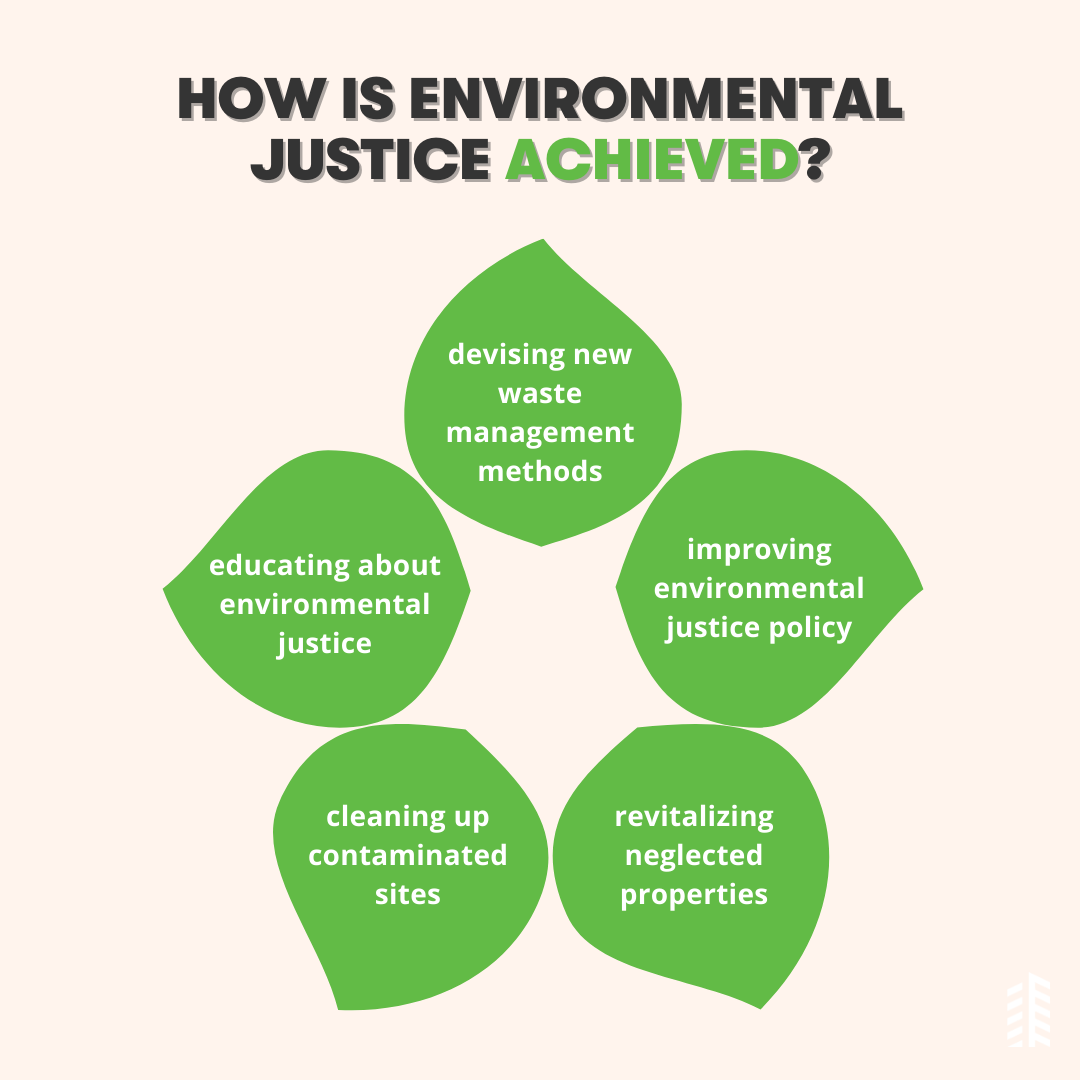Environmental racism “occurs when people of color disproportionately bear the burdens and risks of environmental protection policies while the associated benefits are dispersed throughout society.” (Fisher) Examples of environmental racism include disproportionate placement of hazardous waste facilities in communities of color, poor enforcement of environmental laws and regulation in communities of color, and limited infrastructure leading to higher temperatures.
Environmental justice stems from wanting all people to have access to a healthy environment regardless of who they are and aims to ensure all people receive the same amount of protection from environmental and health hazards and access to clean environments to live, learn, and work. Advocates for environmental justice are seeking to “help social change aimed at meeting basic human needs and enhancing our economic quality, health care, housing, human rights, environmental protection and democracy."

Justice can be achieved by devising new waste management methods, revitalizing neglected properties, and cleaning up contaminated sites. Additionally, policy changes must be made in order to promote access to healthcare and remove environmental hazards from communities of color.
Improving environmental justice policy and educating about environmental justice can help combat Nashville’s environmental issues, like poor health outcomes, air and water pollution, overflowing landfills, and disproportionate negative health outcomes for Black and Indigenous neighborhoods.
Learn more about the Nashville Environmental Justice Initiative’s work to grow a culture of systemic learning around environmental justice in Nashville, develop impactful educational solutions, and connect thought leaders to better mobilize their collective impact.
Post research by Vanderbilt University students, Abby G., Mary-McKenzie G., Lauren M., and Sinead R., in the Fall 2021 Race and the Media class taught by Sophie Bjork-James.
Sources
Maria R. Fisher, On the Road from Environmental Racism to Environmental Justice, 5 Vill. Envtl. L.J. 449 (1994).
Environmental Justice. Tennessee Department of Health. (n.d.).
DeLuca, K. M. (2001). From the ground up: Environmental racism and the rise of the environmental justice movement. Argumentation and Advocacy, 38(1), 54-56.
Environmental Justice & Environmental Racism. Greenaction for Health and Environmental Justice. (n.d.).
Ciccarone, E. (2021, April 22). The green issue: Environmental justice initiative educates about environmental racism. Nashville Scene.